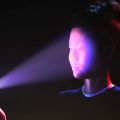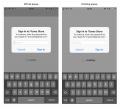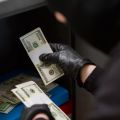
Tell me you have heard this before, but Apple is once again finding itself at the center of a debate between law enforcement and encryption.
Days after the Texas Shooting, Deputy Rod Rosenstein reiterated why encryption backdoors, or ways to circumvent security and privacy protocols are in fact necessary.
Apple offered to help the FBI after they said they could not unlock the phone of shooter Devin Kelly. A source told CNN that law enforcement agencies did not contact Apple for help within a two day time period. Therefore, investigators likely lost crucial time that might have helped them investigate Devin Kelley’s cell phone.
The All Important Two Day Window
Law enforcement could have very easily used the shooter’s fingerprints even after his death. It is known that it is possible to even use the fingerprint sensor if you possibly have a clay replica of the individual's finger.
In this instance, the FBI would not need Apple’s assistance to unlock the phone. The fingerprint scanner would not work if the iPhone has not been unlocked for two days. This is when the iPhone would require you to put in a passcode.
Alternatively, if a suspect utilizes iCloud Backups, law enforcement can get a majority of what exists on a cellphone. This includes text messages, numbers called, website history, notes, calendar events, and more. Apple has shared with the public that they will in fact provide these iCloud Backups to law enforcement.
What else can we do?
Some experts have hypothesized that the Texas incident could further the debate on encryption. The Senator of California Dianne Feinstein wants to revisit a proposed legislation, which would require tech firms to share encrypted messages if given a warrant.
Another possible way to get information is through the computer. Computers tend to be less difficult in terms of preventing data without a password.








